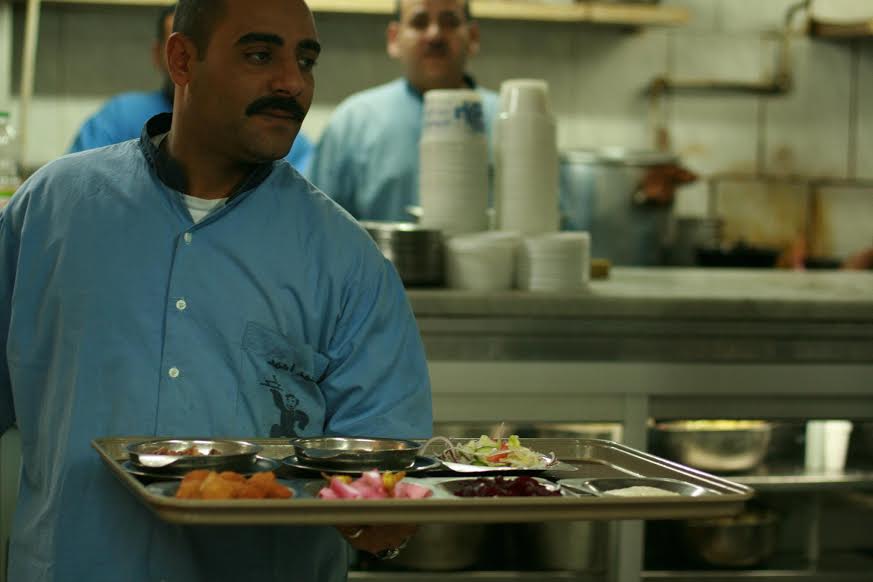This article was updated on Wednesday 14 January. A previous version misidentified Sawsan El-Sammak as the niece of Mohamed Ahmed and reported erroneously that she was involved in a dispute with her father. The author offers his apologies. Details of the restaurant’s planned re-opening have also been added: Please see the updated article by clicking here.
Local families and businesspeople in downtown Alexandria have been dealing with heartbreak this week after the sudden closure of one of the city’s favourite restaurants, Mohamed Ahmed’s.
The restaurant found fame with fuul and falafel, and over the past six decades has solidified its place on the national culinary scene. Specialities include fuul iskandarani (mashed fava beans topped with tahini and finely chopped tomato and cucumber), shakshoukah (egg scrambled with tomato, onion and cumin) and masqa‘ah (an aubergine and tomato casserole). Their tried and tested recipes and speedy service have ensured this humble joint remains packed day and night.
But the establishment’s legendary reputation will not continue into 2015. A notice, signed by the founder and hung unceremoniously in the shop window, made the vague announcement that the ‘company’s contract had ended’.
It also announced that any wages due would be paid in full, ‘according to the provisions of the law’. The closure means sudden unemployment for dozens of kitchen porters, cooks and waiters, who are renowned locally for a remarkable ability to memorise long orders and deliver them within seconds.
And it’s not just Mohamed Ahmed’s staff who have been hit by the closure; neighbouring businesses have never been so quiet. The street, labelled on some maps as Shakour Pasha Street, on others as Abdel Fattah Al-Hadari Street, is generally known by neither name, for the restaurant is a landmark that every local knows.
“We’ve suffered a lot since the restaurant closed,” said Alaa Mohammed, who owns a mobile phone shop next door. “It used to bring in a constant flow of local families and tourists into the street. Many people still pop in to ask me about the restaurant and are shocked when they see it closed.”
It was in 1957 that Al-Hajj Mohamed Ahmed El-Sammak took over the unit, then known as Benyamin, from a local Jewish family. Over the following six decades, he won the restaurant fame by perfecting their simple, vegetarian offering. Now approaching his eighties, he still comes to the shop each morning and, among the clatter of metal dishes and the relaying of orders, works at his desk until the evening prayer is called.
With the average dish costing 2LE, the rich and poor have always rubbed shoulders at Mohamed Ahmed’s. Among the most distinguished patrons were the Nobel Laureate Naguib Mahfouz, and the rock musician Demis Roussous. In 1989 Queen Sofia of Spain visited the restaurant and is said to have spent two hours there, reliving memories of her time at El Nasr Girls’ College just a short drive away.
Framed above Mohamed Ahmed’s desk is a note written by the comedian Fouad el-Mohandes, whose show Kilmatayn wi Bas (Just Two Words) was on the airwaves for fifteen years. “Just two words,” reads the note, “fuul rocks!”
According to the state-owned newspaper Al-Ahram, it is due to a dispute between Mohamed Ahmed and his business partner and niece, Sawsan El-Sammak, that the shop closed its doors. In a statement published on Facebook, the latter announced her hope that the closure was “only temporary”, hinting that the restaurant could re-open if “new and significant institutional reforms are made”.
One woman had travelled from Cairo only to find metal shutters across the doors of her favourite restaurant. “There are two things I do in Alexandria. First, I go and find the sea. And then I eat beans at Mohamed Ahmed’s.”
“I do hope he resolves this dispute. God grant him strength.”







Comments (0)